The Space in Between

I would like to initiate this collection by reciting a passage from the novella Notes from the Underground written by Fydor Dostoevsky: "I believe in it, I answer for it, for the whole work of man really seems to consist in nothing but proving to himself every minute that he is a man and not a piano-key!"
Dostoevsky's piano key represents our Achilles’ heel. We've been condemned to a primordial pursuit of perfection and an innate need for the ideal. The pursuit itself chemically induces serotonin in the brain. However, acquiring such a state of sublimity also leaves us as a destructive force. In the archetypical heaven, there is a sense of fulfillment and relief. However, the state of consciousness granted to us on earth is our fateful imprecation.
Despite the weight of my preceding statement, I'd like to think of the piano key trope as an ideogram for free will. In this series, I have explored archetypal biblical stories and mythical narratives within a psychedelic headspace. The Space In Between probes questions of mortality and pious implications. It acts as a thought experiment, exploring alternate timelines and possible variations of reality.
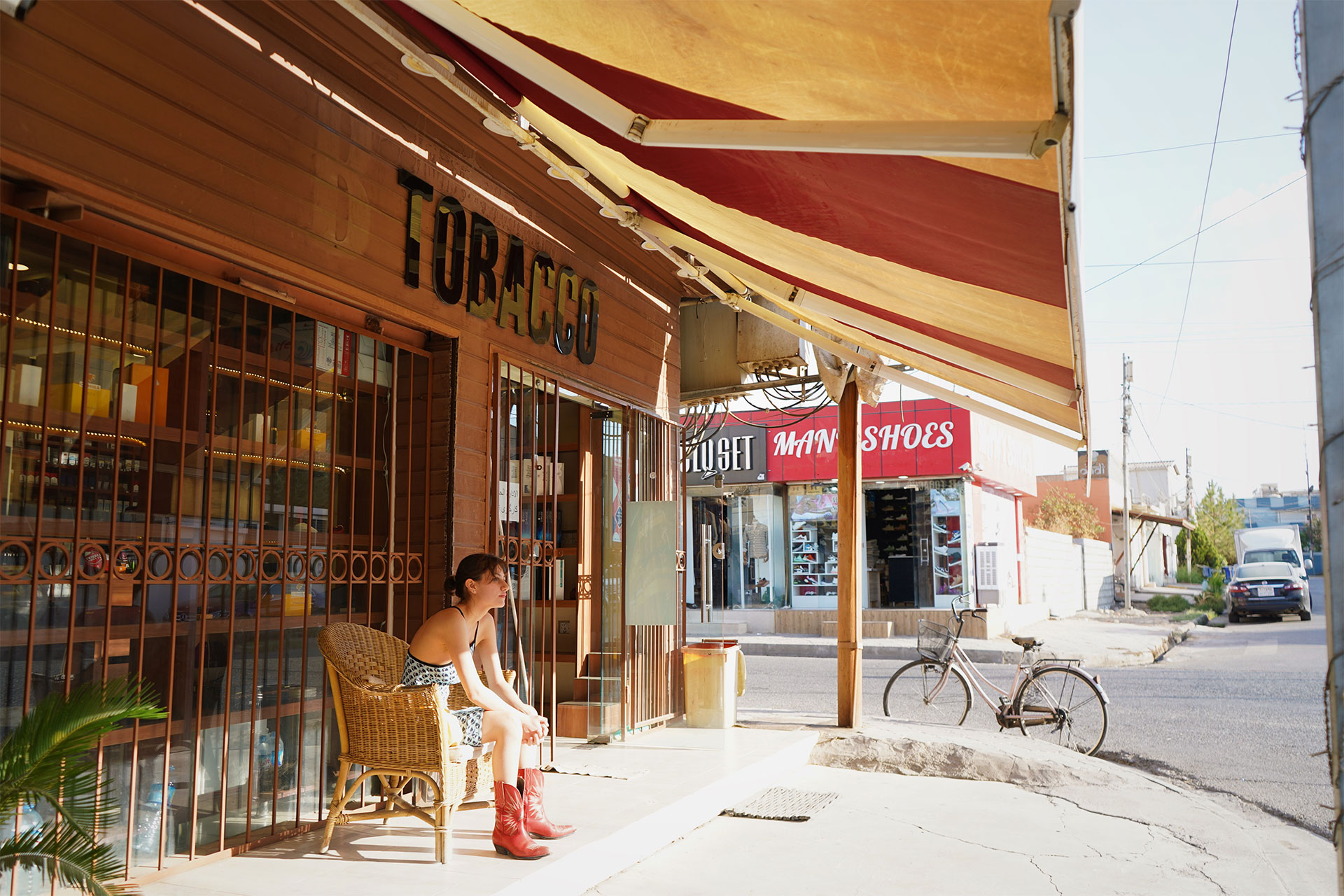
The Beginning
Neel spent six months in Iraq, paving the way in the mountains of Erbil. It was a time of pure introspection in a perfectly still sanctuary, almost as if time ceased there. That's what sparked the birth of this collection.
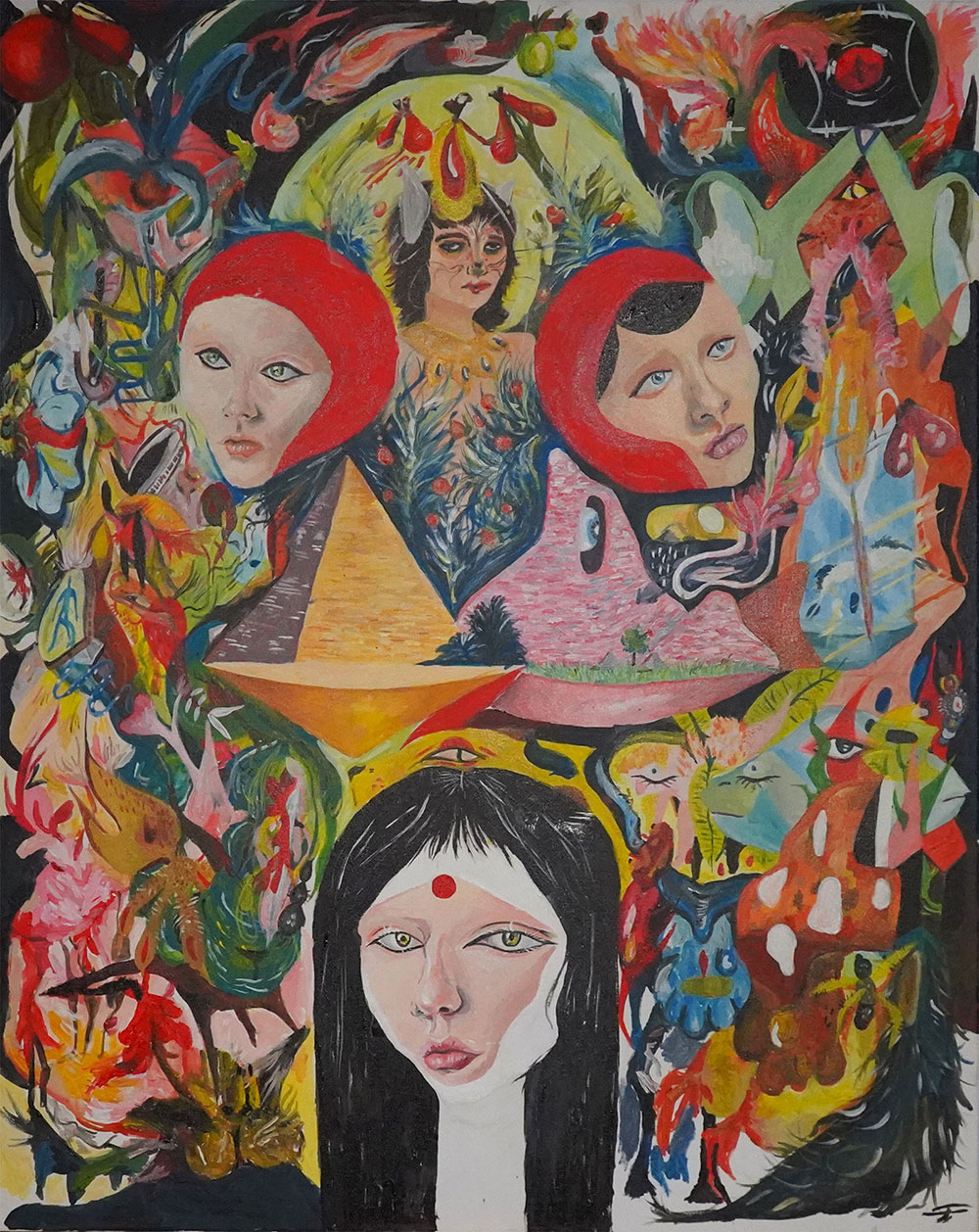
Ether in Eden
You can spot Ether encompassed in a chartreuse orb, encircled by the surplus of divine fruit and life. Empyrean growth surrounds her orb, binding her in place, and the weight of her golden neck holds her down.
This piece explores the theoretical idea of an alternate reality in which Adam didn't have the free will to choose the Apple, a timeline where humans lacked the ability to choose at all. We would be detained in Eden.
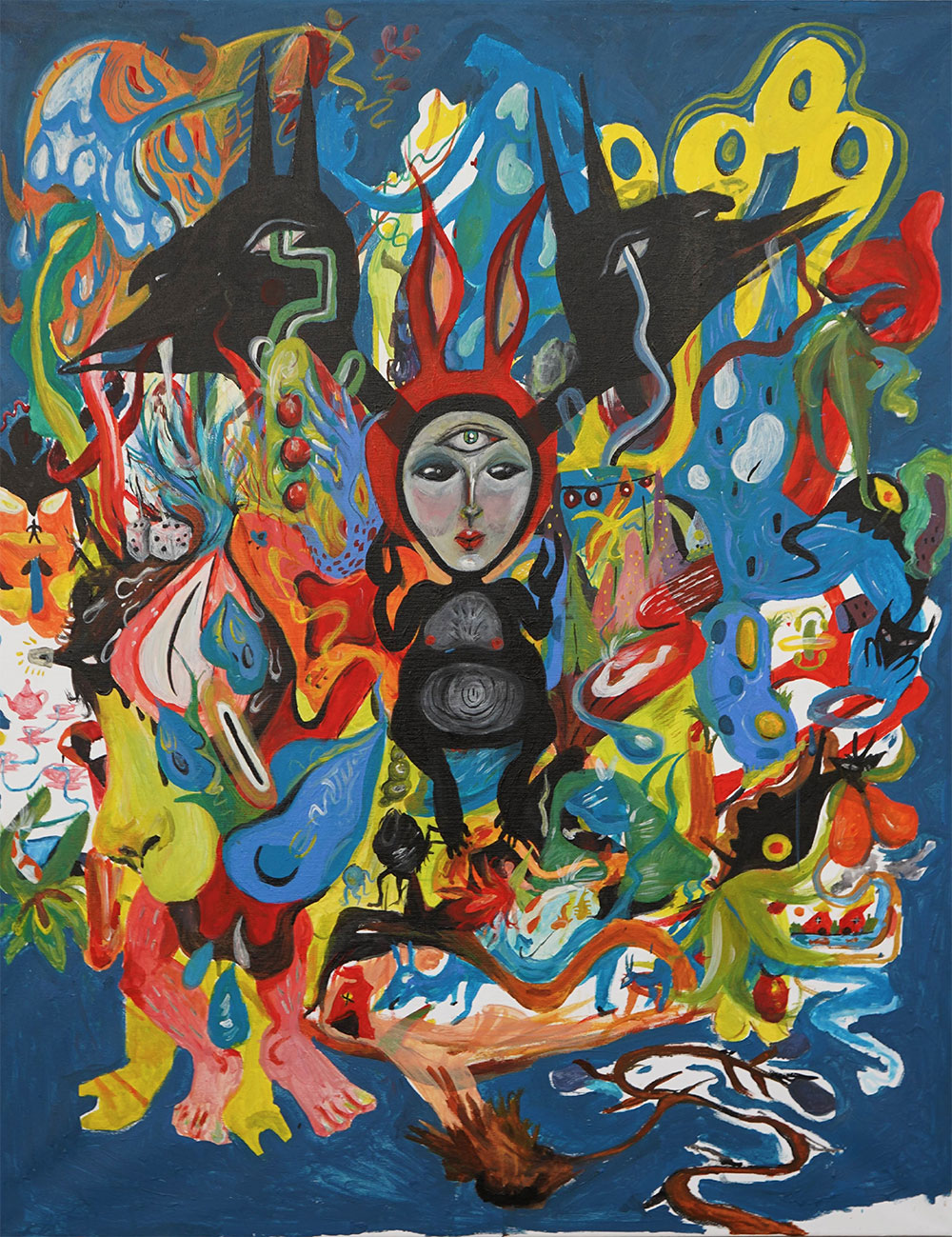
NITEN ICHI-RYU
This piece translates to "two heavens as one.”
The dueling heads embody the relationship between the real and the imposter. If you follow the animal trails, each creature has a faux doppelganger following closely behind. Venturing into the depths of the mind can be a precarious endeavor. Once perception is altered, reality can be lost between two dimensions. The only creature that doesn't seem to be affected by this surreal world is the Koi fish, the quintessence of tenacity despite nature. If anything, they seem to be evolving.
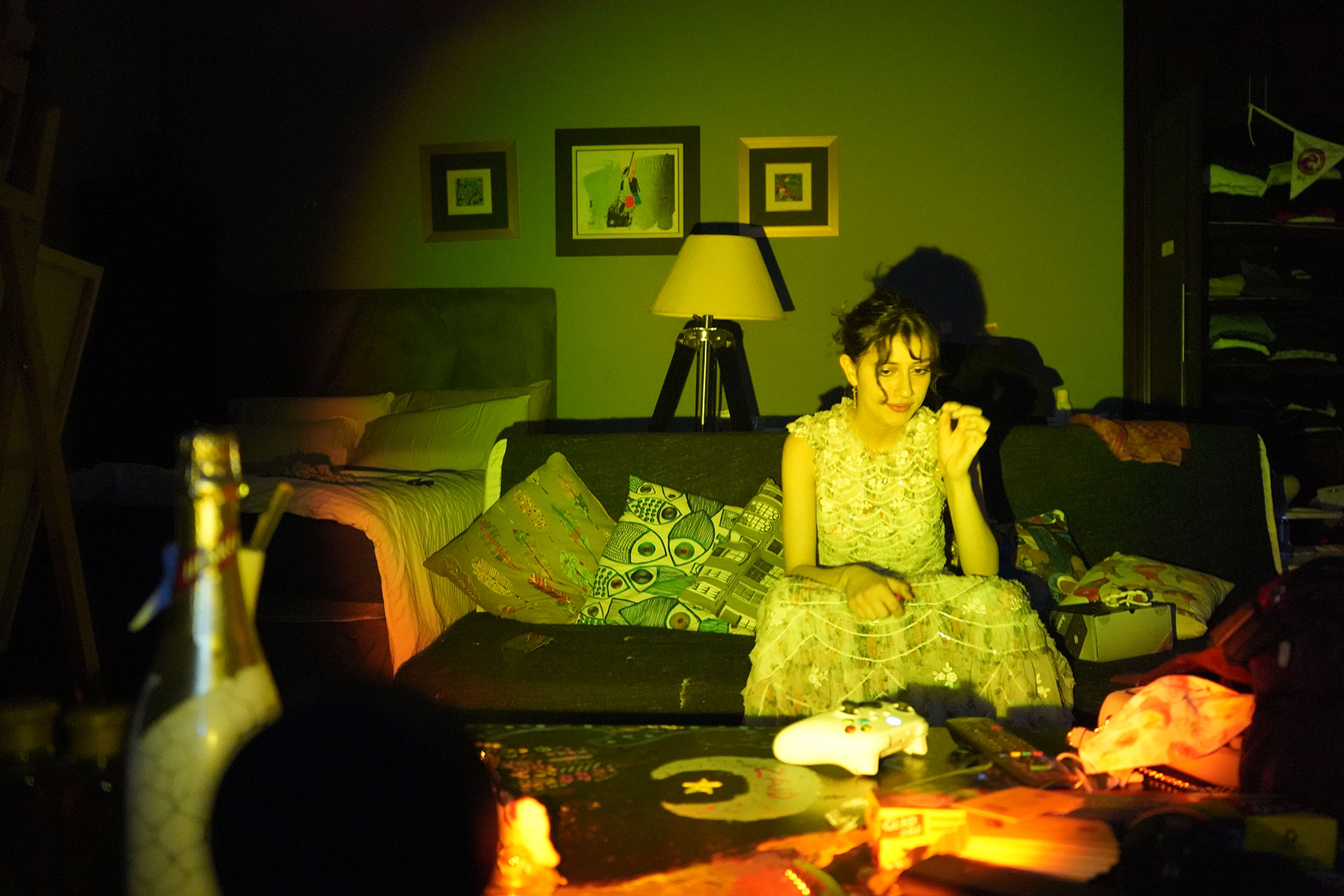
Interlude
Back in Dubai
Returning to Dubai rippled a period of introspection for Neel, a girl. She wanted to enter a new chapter in this series, delving deeper into the human psyche and the evolution of enlightenment. The preceding pieces foreshadow elements of the great warrior, Miyamoto, who is seen as the incarnation of enlightenment. Miyamoto later makes a solo appearance in which fulfillment is realized within him.
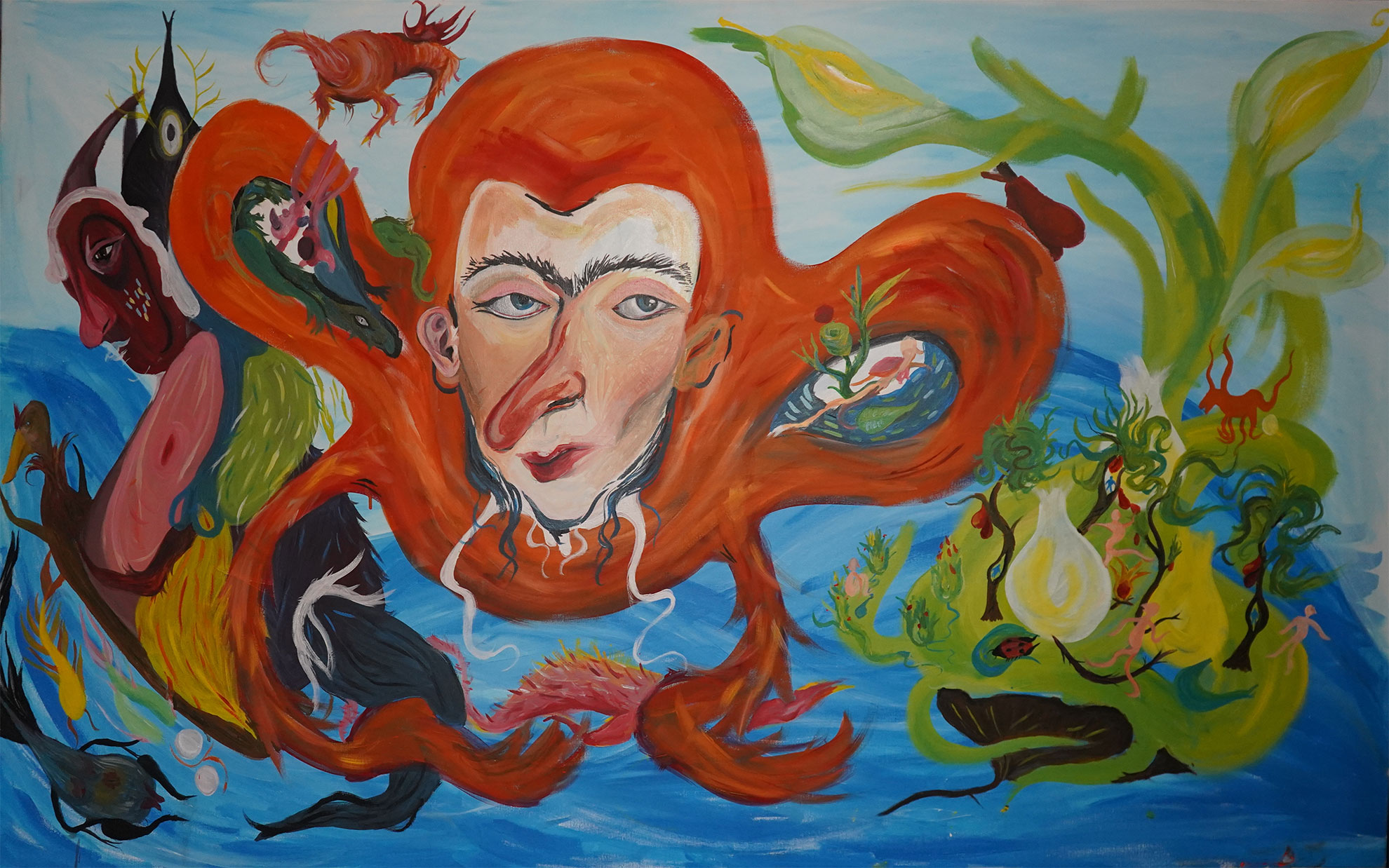
Proboscis Monkey
A collective of non-conformist individuals joins a commune on the floating isle of Funajima. Their lifestyle consists of dancing ritualistically before the fire, bathing naked by the stream to catch the sun, foraging the vegetation, and embracing other primal urges. The bitter orange aroma that wafts on the gentle breeze once belonged to a commune settler. However, through indulgence in his primordial desires, he has changed.
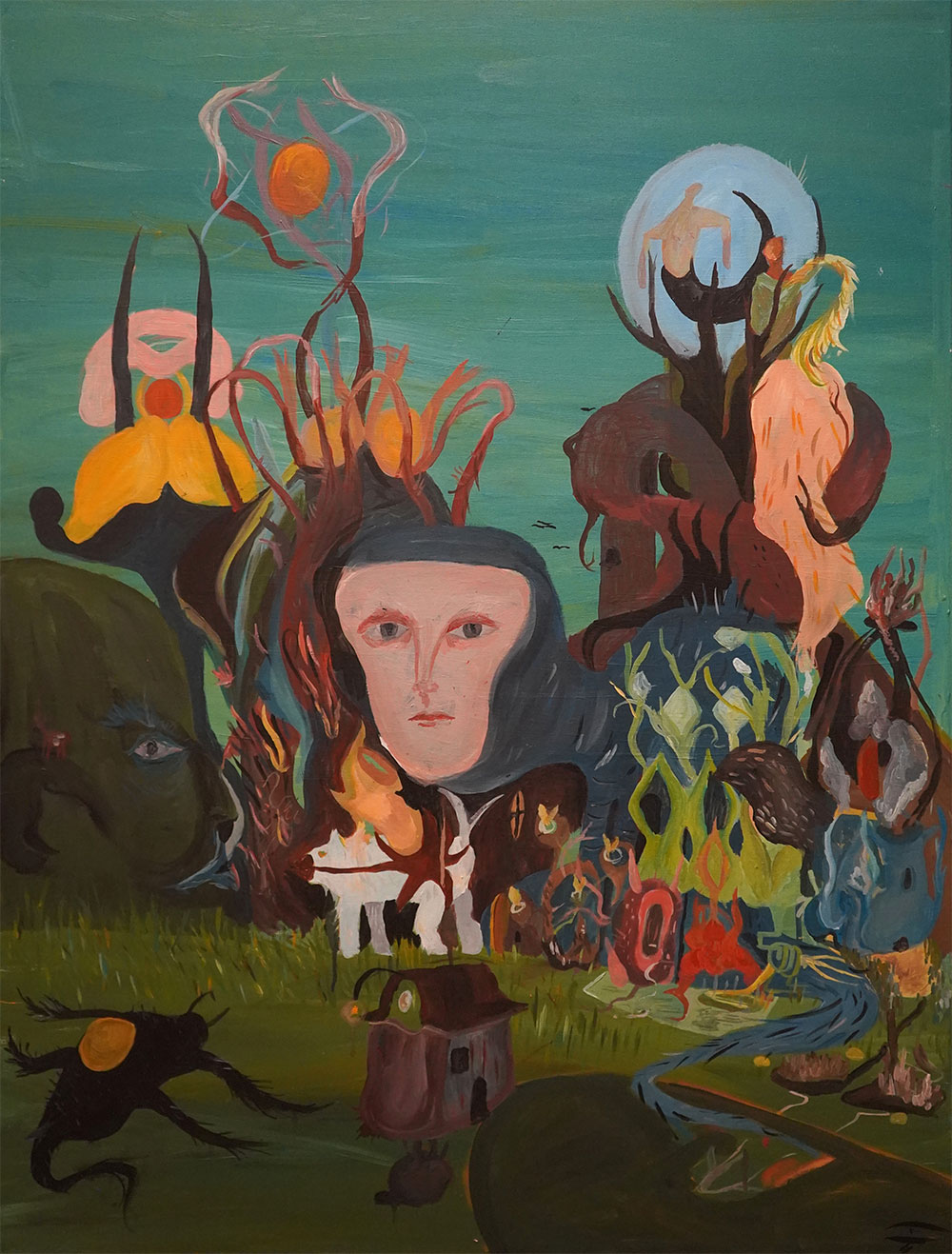
The Journey of Unnatural Things
Venturing deep into the heart of a Saharan expedition of sorts, one's gaze falls upon a fascinating group of peculiar travelers. Their presence in this vast and arid landscape seems to be intertwined with a profound sense of moral purpose, as if they are driven by a shared mission of great importance. However, fate seems to have an intriguing way of putting them to the test, as they find themselves embroiled in a series of unfortunate events that challenge their resolve.
As the sun sets on the dunes and the desert comes alive with whispers of ancient tales, these enigmatic souls press forward, traversing the unforgiving terrain with an unyielding determination. Fach step they take is imbued with a sense of purpose, as if they are propelled by an unseen force that binds them together, urging them towards an unknown destination.
Amidst the scorching days and chilling nights, their camaraderie flourishes, and their collective spirit becomes a beacon of hope amidst the desolate surroundings. The moral implications that unite them are as mysterious as the shifting sands beneath their feet, leaving observers to wonder about the secrets and burdens they carry.
Through treacherous sandstorms and the eerie silence of the desert night, they continue their journey, facing hardships that test their resilience and strength. Despite the adversities, they stand firm, their eyes set on the horizon, determined to fulfill their purpose no matter the cost.
As observers peer into this extraordinary tale of human spirit and camaraderie, the cannot, help but be captivated by the mysterious bond that unites these travelers. The unfolding narrative raises questions about the nature of their quest and the moral dilemmas they encounter, leaving room for reflection on the significance of their journey in a world where the sands of time continue to shift, carrying with them the echoes of their footsteps in the desert of life.
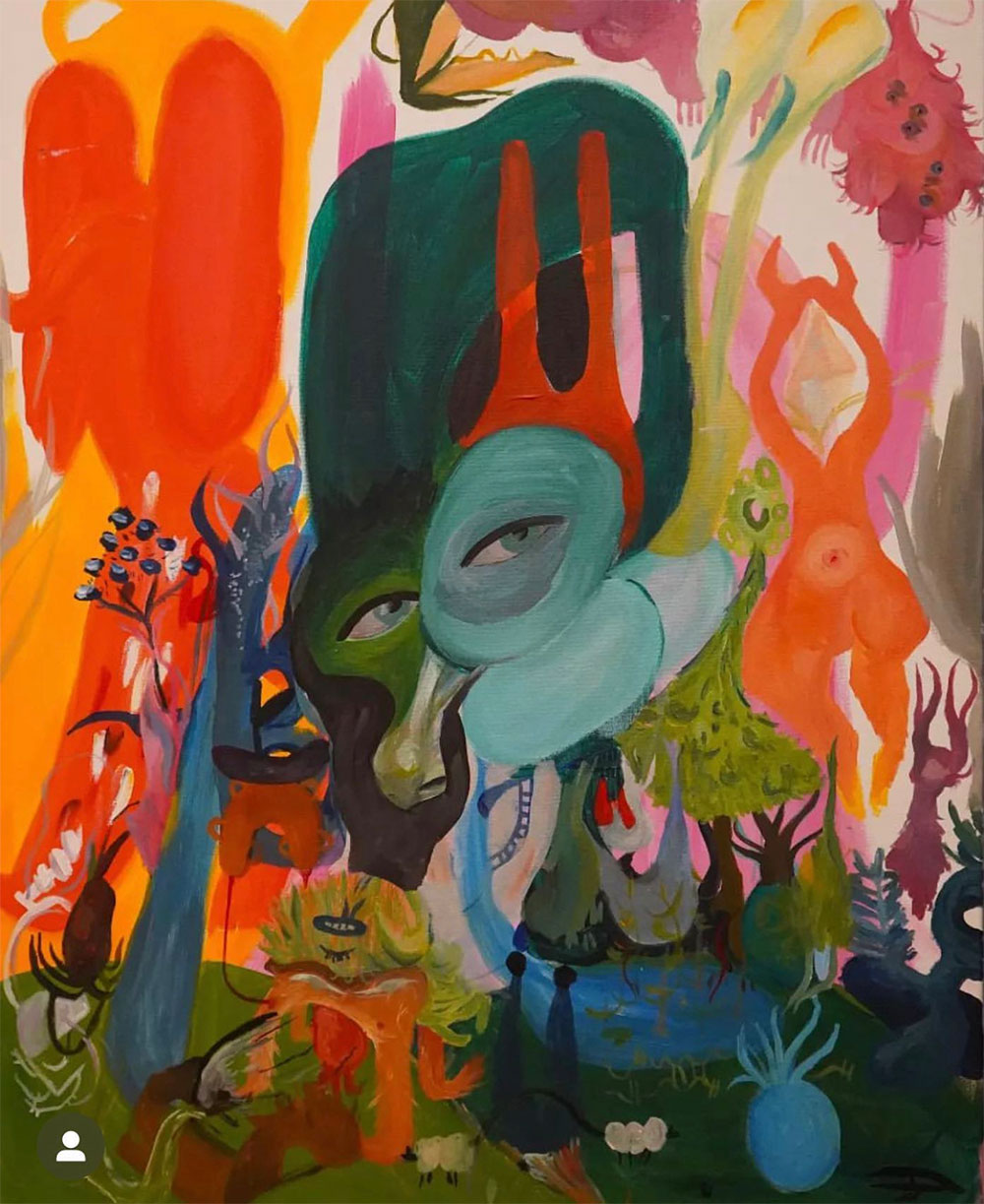
The Playground
In a dystopian era, the media is infiltrated with nihilistic undertones of political uncertainty. Simultaneously, international health care organizations have sedated the masses, leaving their bodies and minds weakened. As a result, the human race reverted to the cyber net instead of tending to their immediate micro socio-economic responsibilities. Large corporations began to feed off the innate human urge to play.
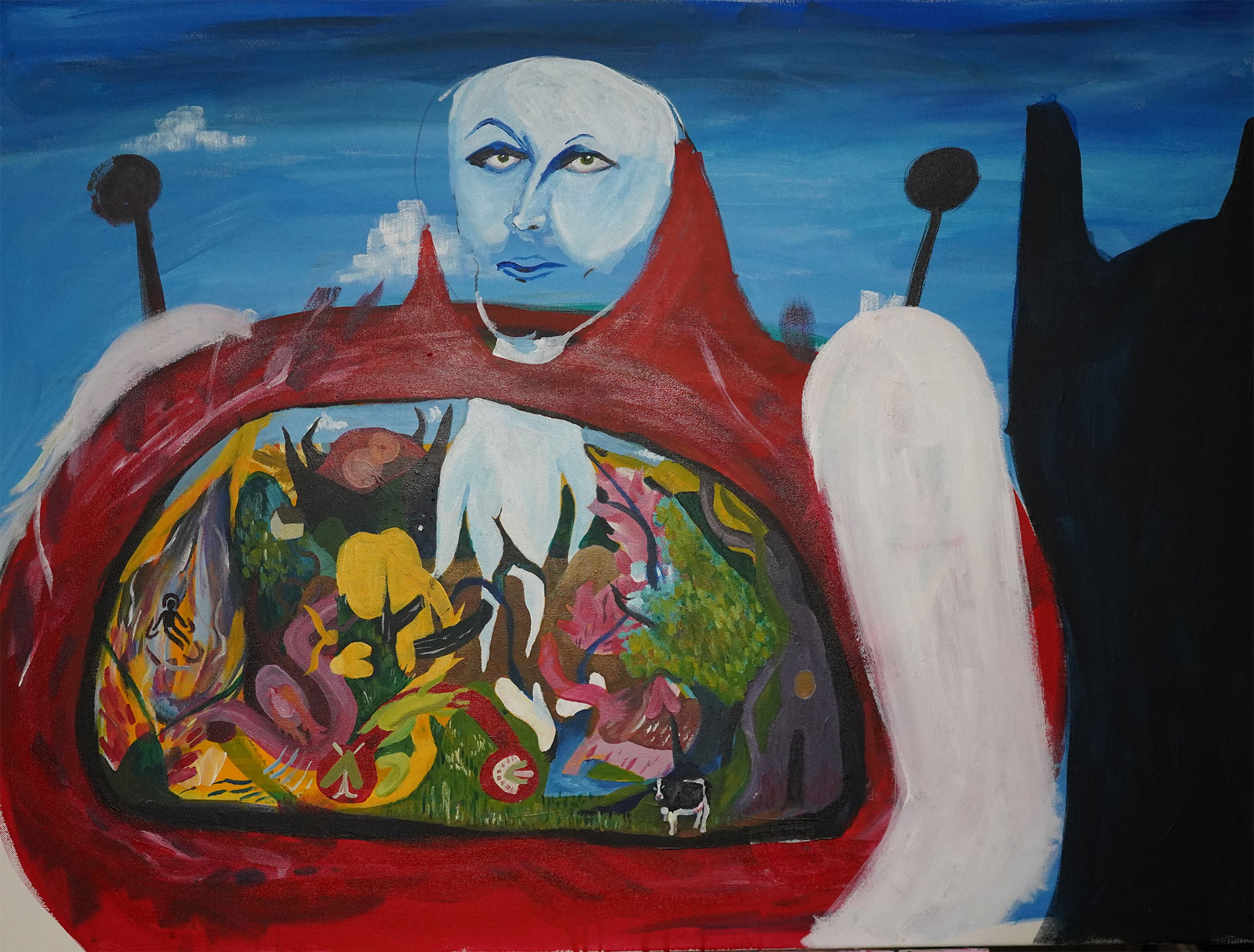
Miyamoto
Miyamoto stares into the great beyond with a vacant Sue. Mere moments ago, he had come across the Q suit; now, wearing it, he retrieves flashbacks of his past lives. Realization strikes Miyamoto when he discovers that his consciousness has occupied everybody known to man. He had committed sbery kind of debauchery while also having the moral ethics of a saint. He is the accumulation of all consciousness. In this, he learns that only by accepting your innate capacity for destruction can you proceed to do good.